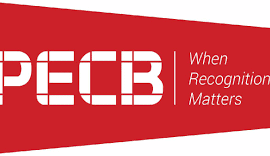
How Regular Audits Help Your Team Perform Better
Regular audits stand as the bedrock of organizational success, acting as a guiding compass that steers teams towards peak performance. In this dynamic business landscape, embracing regular audits is not merely a choice but a strategic imperative for those aspiring to thrive. Through a meticulous examination of internal processes, audits unveil weaknesses and opportunities, ensure compliance with regulations, and foster overall efficiency.
Auditing for Improvement
Audits, acting as a diagnostic tool, unveil weaknesses that, when addressed, pave the way for substantial improvement. Identifying communication gaps, for instance, becomes a pivotal factor in enhancing team dynamics.
Consider implementing a weekly team meeting to discuss ongoing projects and address communication issues head-on. The consequence of ignoring these communication issues can be profound, leading to misunderstandings and project delays. A study by McKinsey highlights that companies with effective communication are 50% more likely to have lower employee turnover rates.
In real-world scenarios, Coca-Cola’s 2018 supply chain audit led to the implementation of new processes and technologies, resulting in cost reduction and improved efficiency. Similarly, Amazon’s 2020 audit of their customer service team prompted the implementation of training programs and tools, ultimately increasing customer satisfaction rates by 20%.
Ensuring Regulatory Compliance
In industries tethered to stringent regulations, audits become a shield against legal entanglements. Regular checks ensure your team sails through the complex waters of compliance, avoiding the treacherous cliffs of fines and legal ramifications.
Conducting regular training sessions to keep your team abreast of the latest regulations and standards is essential. Ignoring compliance issues can lead to significant financial losses, as evidenced by a PwC study citing an average of $14.8 million.
In practical terms, JPMorgan Chase’s 2019 audit of their compliance program led to the implementation of new processes and technologies, reducing the risk of non-compliance. Pfizer, in 2021, audited their manufacturing facilities, implementing quality control measures to ensure compliance.
Fostering Overall Performance and Efficiency
Audits act as a magnifying glass, revealing areas where efficiency can be amplified. Identifying and rectifying inefficiencies is not a luxury but a necessity in the pursuit of optimal performance.
Consider implementing new tools and technologies to automate repetitive tasks and boost efficiency. Ignoring inefficiencies can lead to wasted time and resources. Deloitte’s study indicates that companies investing in automation and technology witness a 20% increase in productivity.
In real-world scenarios, Google’s 2020 audit of their marketing team prompted the implementation of automation tools, reducing time spent on repetitive tasks and enhancing efficiency. Similarly, Microsoft’s 2022 audit of their software development team led to the adoption of new agile methodologies, resulting in a 30% reduction in development time.
In conclusion, regular audits are the linchpin of organizational success, sculpting a resilient and adaptive team ready to conquer the challenges of the future. As you embark on this journey, remember that audits aren’t just about ticking boxes; they are about unlocking the power within your team and propelling them to new heights.





